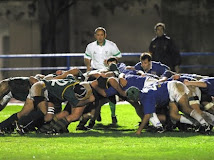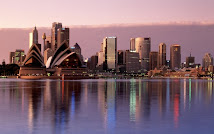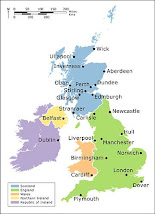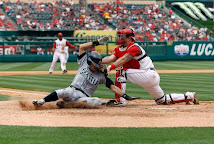
Don Lockerbie, the chief executive of the USA Cricket Association, has said the key to popularising the sport in the United States lies in more international cricket being played there. Speaking to Harsha Bhogle on Cricinfo's audio show Time Out, Lockerbie said he aimed to replicate for cricket the wave of popularity the FIFA World Cup in 1994 generated for football in the United States, and believed that, like football, cricket too would have a professional league in the country in due time. While acknowledging that Twenty20 cricket was the main vehicle to draw more people to the game, he added there was potential for the longer versions to attract a fan base as well.
"In 1994, the soccer World Cup took place, and it generated great interest in the sport and it was followed by the Major League Soccer which started in 1996, two years later," Lockerbie said. "We are looking to do that too. We would love for the ICC to look at the United States in the future for some ICC events.
"We are well under way in a planning situation wherein we are working towards professionalisation of cricket in the US," he said. "We are working towards equalising what some of the other Associate nations like Ireland, Scotland, Holland and Canada have been able to do recently; beginning to put some of their players on professional retainers, and some of these players are now travelling and playing all over the world and getting IPL opportunities. We need to do that in the United States, and along with that will come a professional league."
USA recently hosted a Twenty20 series between Sri Lanka and New Zealand, and Lockerbie said that was the first step towards getting more fans to the game. "We are looking to bring in the best teams in the world," he said. "Even 14 years after the Major League Soccer started in the United States they are averaging 14,000, 17,000, 18,000 people to a match, which isn't too bad. But when Barcelona comes to play Manchester United in Philadelphia they have 90,000. Why is that? When Mexico plays the United States, they can get 100,000 at the Rose Bowl. So the point is that the soccer has a good history now of being positive. By bringing in 'Destination USA,' events, and what we think was a successful Sri Lanka-New Zealand series, we start that way."
The potential for investing in cricket in the US remained huge, Lockerbie said, given the country's infrastructure and record for hosting sporting events with success. "Well, our little game is the second most popular sport in the world, as I view it, behind football. With the great interest from the rest of the world, in the United States, people want to do business in United States. We believe that we are on our way to corporate sponsorship, investment in US cricket, development of facilities.
"The mayor of Indianapolis is very serious about building a cricket stadium; Indianapolis is often called the sports capital of the United States. The Indianapolis 500 just took place the other day, with 500,000 fans at the event, the world largest one-day sporting event. We know how to put on events, and their attitude is - cricket is the second most popular sport in the world and why wouldn't there be a stadium in Indianapolis.
"The city of New York has said to us that one day they would like to have a cricket venue, and they could see themselves as the capital of cricket in the United States. We could become the capital of cricket in the western hemisphere. This is a very big step, and I am hoping to work with my board of directors, our investors, and sponsors, to make that happen in the next three or five years."
In addition to making the United States, with its large untapped fan base, a prime destination for international cricket, Lockerbie stated two other main goals: ensuring the US national team qualifies for the 2015 World Cup and developing a youth programme by taking cricket to the schools.
While conceding Twenty20 cricket was the spark to draw more support for the game in the US, Lockerbie said that Tests and ODIs too, if played by the right teams, stood the potential to take off. "That's [T20] is the perfect storm for us. We are better organised, and there is growing interest. Even in the last five-six years, the amount of immigrants moving to the United States, who are cricket crazy, has just doubled and tripled. So we are ready to go with that perfect storm, the Twenty20 game.
"In the right city, with the right demographics, with the right two teams playing, I don't see why four-five day cricket is any different than Phil Mickelson teeing off on Thursday and winning a golf tournament on Sunday. You've had 60,000 people walking that golf course. Now if India plays almost anybody in a Test match, say in New York, we will have 40,000-50,000 people there."






































































